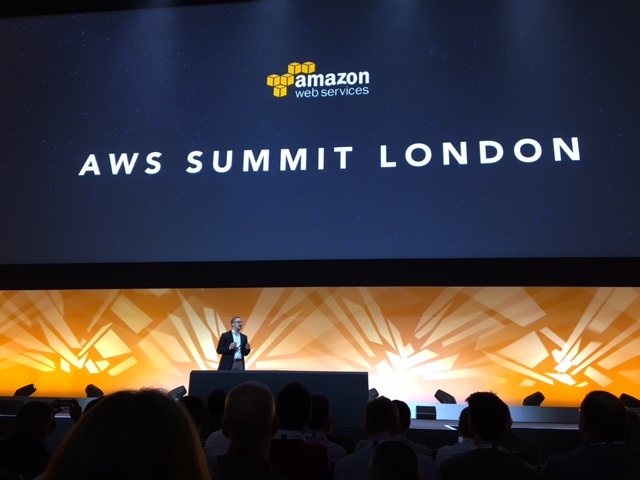

In an unexpected move on Aug. 9, Amazon Web Services announced that it is joining the Linux Foundation’s Cloud Native Computing Foundation as a Platinum member.
The move brings AWS into the open-source group that is leading the development of the Kubernetes container orchestration system.
The CNCF was originally formed as a Linux Foundation Collaborative Project in July 2015, with charter members including AT&T, Box, Cisco Systems, the Cloud Foundry Foundation, CoreOS, Cycle Computing, Docker, eBay, Goldman Sachs, Google, Huawei, IBM, Intel, Joyent, Kismatic, Mesosphere, Red Hat, Switch SUPERNAP, Twitter, Univa, VMware and Weaveworks. Google played a pivotal role in the launch of the CNCF, contributing the Kubernetes container orchestration project.
The CNCF has expanded significantly since its founding and now hosts 10 open-source projects, including Kubernetes. Among the most recent additions are the containerd and rkt container runtime projects that joi-ed the CNCF in March 2017. The CNCF now also includes as members all three major public cloud providers—Google, Microsoft and Amazon.
Container adoption and use is clearly not a fleeting trend, but rather will likely be a long-term reality. The CNCF in its short history has emerged to become the home for some of the core elements of the container revolution in terms of both orchestration, including Kubernetes, and container engine runtimes, with Docker’s containerd and CoreOS’ rkt.
It makes sense that AWS, being the leader in terms of market share and revenue in the public cloud, would want to be engaged with the CNCF. By becoming a member of the foundation, AWS now has a literal seat at the table, with Adrian Cockcroft, vice president of cloud architecture strategy at AWS, now on the governing board of the CNCF.
Although Kubernetes started out as a Google effort, it has expanded beyond the confines of Google’s cloud to become a tool to help enable multicloud container management and orchestration.
To date, AWS has not offered its own Kubernetes service on the Amazon cloud platform, though multiple third-party vendors, including CoreOS, have provided tools and resources that enable users to run Kubernetes on AWS.
It’s not clear whether participation in the CNCF will lead AWS to launch its own Kubernetes service. Whether or not AWS has its own Kubernetes service though isn’t necessarily the point.
What AWS needs to ensure is that its platform can be a successful target for Kubernetes deployments, whether as a stand-alone installation or as part of a multicloud approach and regardless of what vendor tool is being used.
AWS already has its own container deployment and orchestration system called the Amazon EC2 Container Service (ECS). In an interview with eWEEK earlier this year, Deepak Singh, general manager of the ECS offering at Amazon, explained the goals of ECS and how it relates to Amazon’s partnership with Docker.
Docker Inc. has its own container orchestration system called Docker Swarm that is competitive with Kubernetes. The Docker Enterprise Edition (EE) and the Docker for AWS offerings are supported and run on AWS, even as AWS has its own ECS offering.
What is your biggest cybersecurity concern?
Singh explained that Docker EE and Docker for AWS provide the Docker Inc. full stack view of how to run containers. In contrast, what ECS provides is an AWS viewpoint, with a style and APIs that are consistent with AWS’ approach to management.
AWS’ membership in the CNCF is not a capitulation or an admission that it was doing something wrong and that it needed to change. The fact that AWS is now part of the CNCF will not change the AWS approach to container management.
What it will do is inject some of AWS’ views into how the CNCF and its member projects do things and provide more supported options on AWS for running Kubernetes and CNCF projects.
AWS is not about prescriptive methods of cloud deployment, but rather is all about providing stable, supported, reliable infrastructure and the tooling to enable organizations to do whatever they want.
Amazon quite literally is the company that helped to define the term “cloud” with its Elastic Compute Cloud (EC2), and now it will also help to define and enable the cloud native computing future as well.
Originally published on eWeek
American space agency prepares for testing of Boeing's Starliner, to ensure it has two space…
As UK and Europe develop closer military ties, European Commission says it will invest €1.3…
Zuckerberg seeks to revive Facebook's original spirit, as Meta launches Facebook Friends tab, so users…
Notable development for Meta, after appeal against 2021 WhatsApp privacy fine is backed by advisor…
First sign of shake-up under new CEO Lip-Bu Tan? Three Intel board members confirm they…
Trump's nominee for SEC Chairman, Paul Atkins, has pledged a “rational, coherent, and principled approach”…